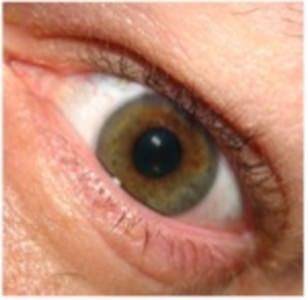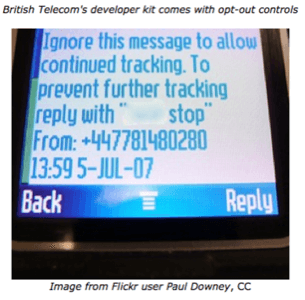Location awareness is hot. Startups like Brightkite, Loopt and others are based entirely on the concept. Yahoo! is blazing new trails in the field with FireEagle and the new Yahoo Location Database API. Even Yelp is getting in on the action.

But what happens when companies or governments start using technologies like these to track us against our will, or without our consent?
While many have suspected this is already going on, there’s now one firm example on record of exactly that happening to more than 100,000 people. This is completely unacceptable – these technologies must be opt-in.
Seth Borenstein of the Associated Press reports tonight about definite example of cell phone location privacy intentionally violated without the knowledge of the phone owners. Researchers at Northeastern University won’t say where the 100,000 people they tracked live or what companies helped them do it – but they made sure to do it outside of the United States.
What The Scientists Did
Ethically challenged physics researcher Cesar Hidalgo used cell phone towers to track the locations of more than 100,000 people whenever they made or received phone calls and SMS over a six month time period. Hidalgo and fellow researchers used the installed tracking technology in the phones of another 206 unwitting people, checking in on where they were every two hours. The conclusion: most people don’t go that far from home in their every day lives. Almost half of the people tracked generally stayed within the same six mile area. Shocking, isn’t it? Now just imagine what they could find out if people were given implants unknowingly.
That’s Worse Than Creepy
It’s reminiscent of the MIT researcher we wrote about last year who is collecting “passive social graph data” by watching whose cell phones come near who else’s, something he calls “reality mining.”
In this case, though, the subjects of the Northeastern study didn’t know they were being tracked and studied. Hidalgo says that’s ok because they were studied in anonymous aggregate. “In the wrong hands the data could be misused,” Hidalgo told CNN. “But in scientists’ hands you’re trying to look at broad patterns…. We’re not trying to do evil things. We’re trying to make the world a little better.” Tell that to a long history of science experiment subjects tested against their will.

Even the study of people in anonymous aggregate needs to be opt-in, otherwise there’s just too much trust being put in anonymous researchers.
This is why we celebrated FireEagle as much as we did when it launched. That platform for other location aware services to collect data through asks users on a regular basis if they are ok with FireEagle continuing to keep track of their location reports.
That’s beyond opt-in, it’s respectfully, effectively communicative. Anything less is reason to reject location awareness in general.
Creepy eye photo by Flickr user Jimmy_joe

















